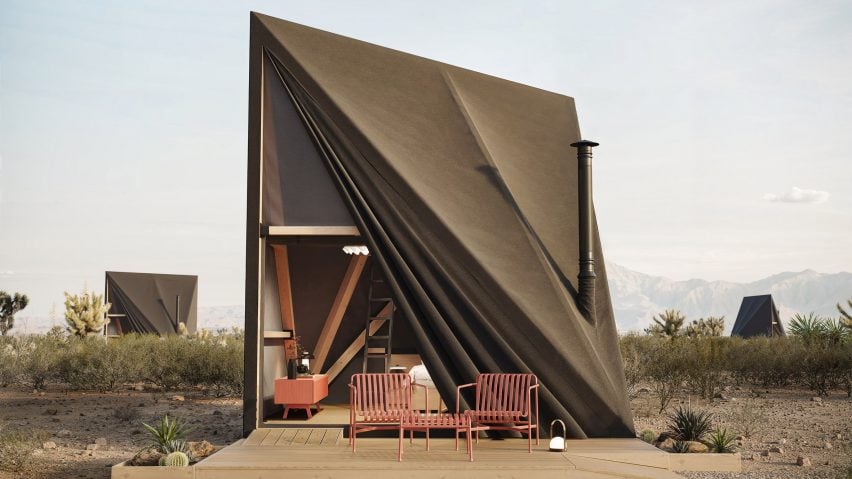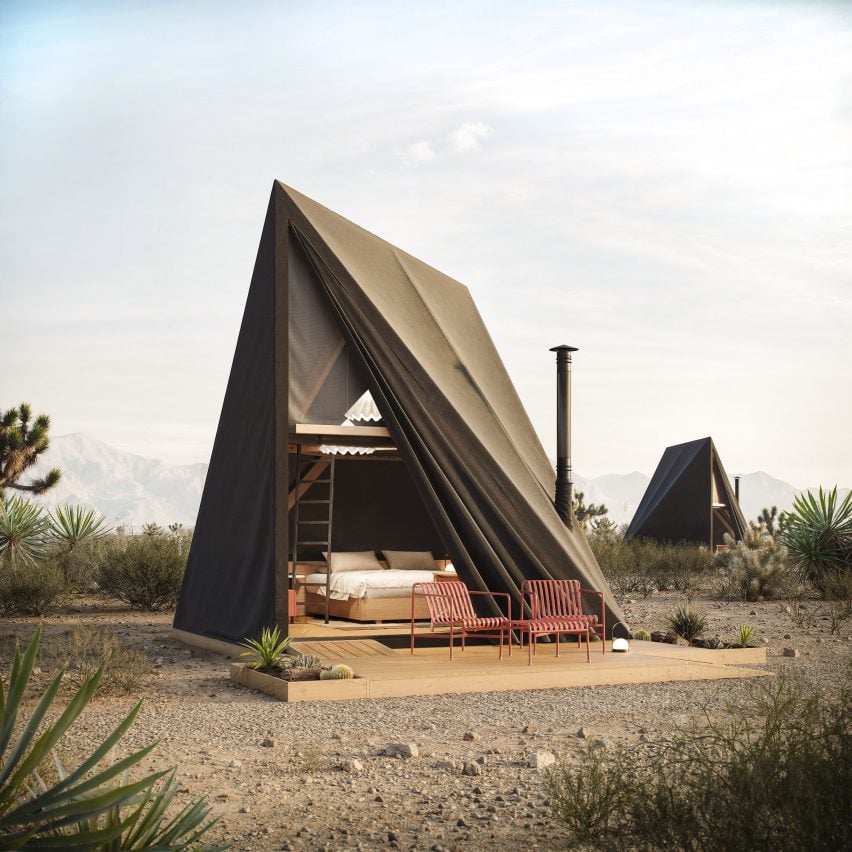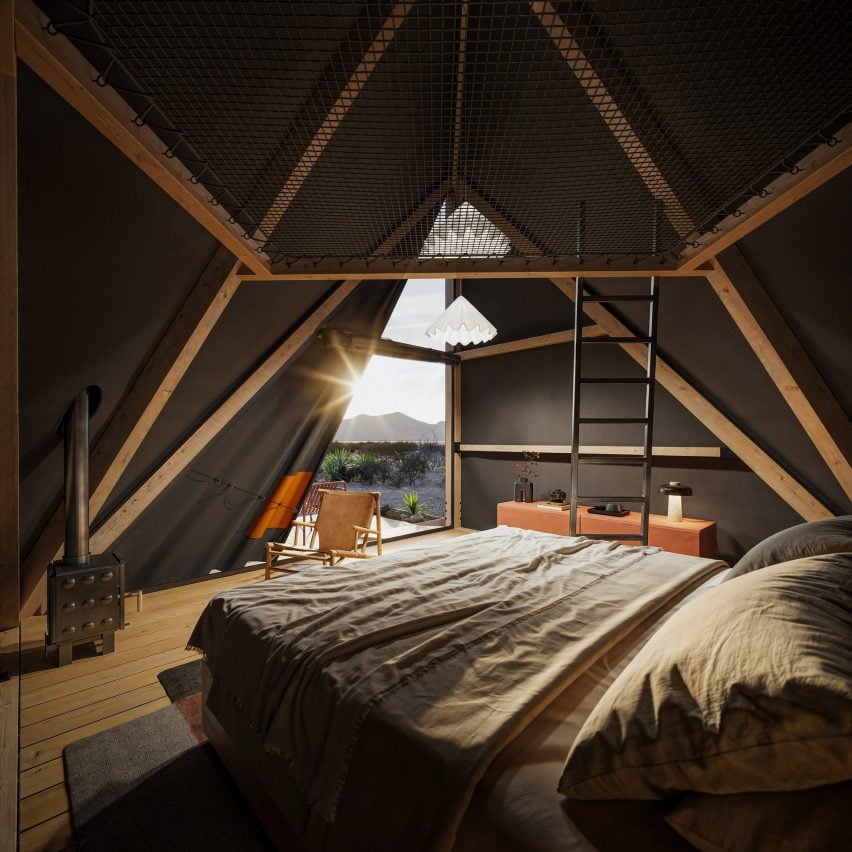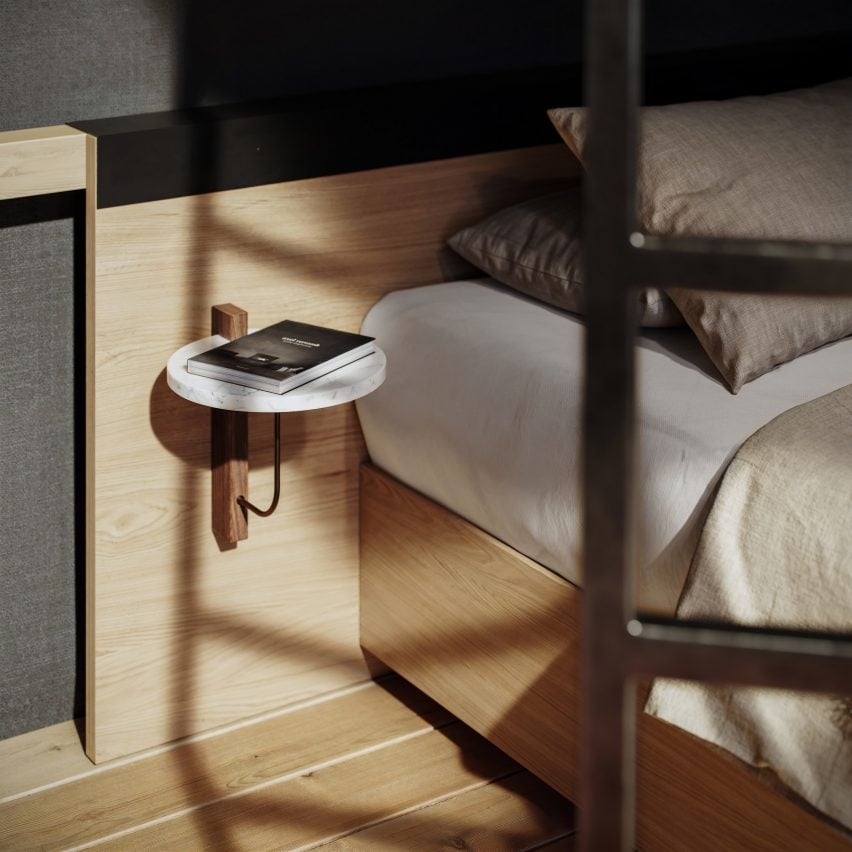
BIG and Nokken marry "functionality and elegance" for mobile glulam tent
Danish studio BIG and cabin manufacturer Nokken have developed Softshell, a timber-framed tent that aims to offer a low-impact alternative for accommodation at eco-resorts and glamping sites.
Intending to reduce the need for permanent infrastructure in remote natural settings, Softshell is designed by BIG and Nokken as a mobile shelter that can be easily transported and assembled by its owner.
It will feature a glued-laminated timber (glulam) structure with two levels enclosed by a cotton-mix canvas material.

"Softshell is groundbreaking because it challenges the traditional ideas of what mobile accommodations and tents can be," said Nokken co-founders Nathan Aylott and James van Tromp.
"It combines the portability and simplicity of a traditional structure with the design sophistication and durability you'd expect from a more permanent dwelling," they told Dezeen.
"Thanks to our collaboration with BIG, the design feels fresh and forward-thinking, bringing together functionality and elegance in a way that really stands out."

Softshell tents will have a square base measuring 4.2 metres wide and its pitched roof will rise to 4.75 metres tall. An entrance deck will provide an additional 2.1 metres of floor space.
Its mobile structure is designed to have a minimal impact on the landscape, helping hospitality businesses such as eco-resorts and glamping sites to preserve their surroundings.
Softshell can also be used by homeowners as a garden studio or guest accommodation.
"Many of our hospitality clients face challenges such as inaccessible sites or strict local construction regulations – Softshell addresses both," said Aylott and Van Tromp.
"Its timber spars are man-portable, allowing access to remote locations beyond the reach of trucks or cranes. Additionally, local councils are often more lenient with canvas structures compared to traditional modular builds."
The shelters will be built on a modular timber foundation, designed to be adaptable to different landscapes and to leave no lasting impact on the ground after it is removed.

"The foundation is modular timber footing, which means it can be adjusted to different terrains without requiring any invasive groundwork," said Aylott and Van Tromp.
"This is really important to us because it aligns with our commitment to sustainability – no digging, no disruption to the landscape."
"Once the Softshell is disassembled, it leaves no lasting imprint on the environment," the co-founders continued. "It's ideal for locations that prioritise preservation, and it allows the structure to be moved and reused without harming the site."
Softshell prototypes are currently being tested on sites in Canada, after which the tent will be made available to order, with the first deliveries expected for summer 2025.
Other tent-like structures featured on Dezeen include a flat-pack temporary cabin designed for off-grid living and resort suites in Saudi Arabia informed by the tents of the nomadic Bedouin people.
The images are courtesy of Nokken.